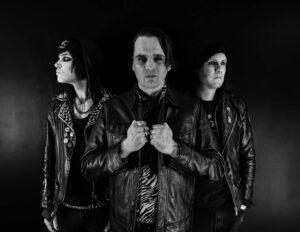JUDGE SMITH – Orfeas Superstar
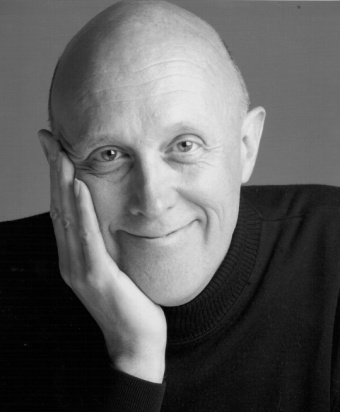

Interview with Judge Smith
1. You are a founder member of Van der Graaf Generator. So, how easy is to work with Peter Hammill?
I’ve never had a problem. He’s a hyper-intelligent guy with a very determined artistic vision, and he doesn’t ‘suffer fools gladly’ (Do you have this phrase in Greek? It means to be unwilling to turn a smiling face to stupidity). Some of his work is touched with a very great genius, so you treat him with respect, but if he wants to work with you, then he’s easy and fun to be around, and he works really hard.
2. What are your best memories from Van der Graaf Generator?
My memories are all very early ones, because I left the band so early on. Maybe Peter and me knocking on John Peel’s door and singing our stuff to him sitting on his floor, while Mark Bolan glared at us. Or Graham Bond taking us to visit a black magic cult he was interested in. Or hanging out with Reperata and the Delrons at the Playboy Club.
3. You have collaborated with a wide variety of artists with different music styles, from classical music – to the punk rockers Chaos UK. Any special experience by all those asymmetric collaborations?
Collaboration is the key to continued creativity. New people; new instruments; new musical styles, they can all give you fresh creative energy, as long as you can maintain your own personal creative vision and don’t allow it to be diluted. I am currently collaborating on a new album with the American arranger and producer David Minnick. It’s a wonderful experience. The key is to give away just the right amount of control to other people; not too much and not too little.
4. I can read in your biography about composing music for theatre and writing a book. Would you like to talk us about these activities?
I spent several years, maybe from 1975 to 1980, writing stage shows for theatres; different kinds of musical theatre, but I eventually became disillusioned because I was always working in low budget productions, and doing musical theatre properly is a very expensive business. Singing actors are hard to find, or they were thirty-five years ago, and my vision for the shows I was writing sometimes did not accord with the vision of the theatre directors. The one book I have written is a very large work on paranormal and spiritual subjects. It has never been published, and I would have do a lot more work to split it into about three shorter books to make it acceptable to publishers. I wrote it while I was recovering from the seven years continuous work it took to write and record ‘Curly’s Airships’, and while I was building a new studio, and once the studio was complete, I wanted to do music again!.
5. In 1974 you wrote and directed the film The Brass Band that earned many international awards. What do you remember from that movie?
Before I decided to waste my life doing music, I wanted to be a film director. ‘The Brass Band’ was the second of the two films I made. It was a very happy, though very intense experience for me, we made the film on the coast of Northumberland (in the North East of England) with a cast mainly drawn from an amateur theatre company, who were all wonderful. The music (for brass band) was written by Michael Brand, who I went on to collaborate with on various projects over the years, and, as I recall, Peter Hammill supervised the location recording! I think, on balance, that I was wise to move to making music instead of making films. Music is a hard and difficult thing to do, but making movies is twice as tough. A film director has to be an artist, a politician, a military general and a financial wizard, with the hide of a rhinoceros and a will of iron. I’ll stick to music!
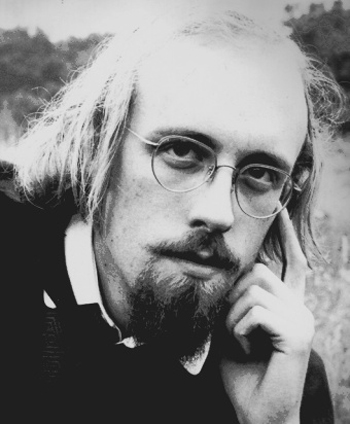
6. In 2006 you recorded an album that is designed for massage therapists. Do you believe that music could heal health problems?
No, I don’t, but I do believe that the right music can make a therapist’s job easier and their work more effective. My girlfriend Fiona is a massage therapist, and we were both very disappointed at the quality of music that is available for playing while physical therapy is being applied. The music must be peaceful and relaxing, but we found that most of what was available was simply dull and boring. She challenged me to come up with something better, and ‘The Vesica Massage’ CD is the result. I am very proud of the project, and I have had some wonderful feed-back from users.
7. Have you ever researched the scientific area of mind waves and how alpha or other waves could have a relaxing impact through the production of specific sounds?
No, but I’m aware of the theory. The pieces on ‘The Vesica Massage’ are all within the tempo range of a relaxed human heartbeat, and the fundamental musical key of the work is traditionally associated with peace, calm and happiness, but there is no further attempt to use brain theory in the music.
8. You have a new album that is called Orfeas, would you like to say a few words about it?
This is my third Songstory, and it’s a retelling of the ancient myth of Orpheus, the magical musician who travels to the Land of the Dead in search of the lost Eurydice. In my version of the story, he is a superstar rock guitarist. It is a story about the power of music, and I use half-a-dozen entirely different types of music to tell the story; there is the instrumental guitar rock of the ‘George Orfeas Band’, the Mediterranean acoustic guitar music of the storyteller Bard, Death Metal, Classic Trance dance music, and contemporary classical music for string sextet. It isn’t much like anything else you will have heard.
9. How did you decide to compose an album about a Greek myth?
I have wanted to make a Songstory about the Orpheus Myth for a very long time. Since I first saw it in the mid ‘80s, my favourite movie has been ‘Orphee’ by Jean Cocteau, and though my own take on the story is a very long way from the French poet’s, his surreal vision certainly provided the initial impulse for me to start downloading research material in 2001. The Greek Myths are immensely powerful, and for hundreds of years artists of all kinds have wanted to tap into that power by making work based on those myths.
10. Have you ever been to Greece? If so, where?
I love Greece. Each year my girlfriend (who grew up on Cyprus) and I spend three weeks in the village of Sigri on the island of Lesvos.. We love Greek food, Greek music, Retsina and Raki, and I am one of those embarrassing foreigners who likes the komboloi, but above all, we love the Greek people, and we are very sorry about the financial burdens that are now being placed on their shoulders.
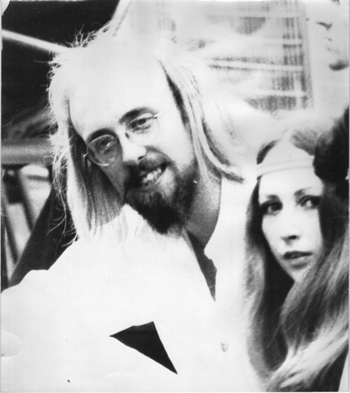
11. Can you describe us the research process in order to find information about the story of Orfeas?
When I am going to write a Songstory, I always do a lot of reading first, and I was amazed to find just how many musical interpretations of the story there have been. The earliest true opera that survives, from the year 1600, is a version of the tale, and the production of Orpheus-related music has continued unabated from that time until the present day. Grove’s Encyclopaedia of Music lists over 60 operas on the theme, along with countless ballets, songs and miscellaneous musical adaptations. My girlfriend Fiona tells me that I was talking about making an Orpheus piece when we met about 13 years ago, and in the time I’ve been tinkering with it, several albums, songs, modern operas and novels have appeared in which Orpheus is a rock-god of some kind. So I am not being particularly original in setting the story in the world of Rock Music. But it’s pretty original in other ways though!
12. Why did you decide to use Greek letters in the names of the three acts?
The three phases of the story conform to Aristotle’s theory of Tragedy in which ‘Hamartia’ is the tragic error of the hero, ‘Anagnorisis’ is the hero’s recognition of the truth, and ‘Peripeteia’ is the hero’s reversal of fortune. I wanted to maintain the link in people’s minds with the original Classical source of the story, so I used those terms and the Greek lettering of the words. The Bard Anachronistes, a sort of wandering storyteller, is another means of keeping that link alive in the listener’s mind.
13. You have an interesting concept in the album by modernizing the myth of Orfeas. Orfeas is a modern rock star. Please let us know more about the story and the meaning of the concept for the today’s music industry.
My version of Orfeas can be read in several different ways; it could be seen as a meditation on the nature of inspiration, a celebration of the Big Guitar Solo as a major creative act, or an exploration of the Near Death Experience. Orfeas is very successful, but he is just playing his old hits and relying on his phenomenal improvising skills. He has lost interest in the music and is more excited about his classic car collection. His guitar, about which he is very superstitious, mysteriously disappears during a gig, and driving home in a fury, he crashes his car and finds himself in the Land of the Dead. And that’s only the start of his troubles. As for a meaning for today’s music industry, I could say that ‘Orfeas’ is a warning against becoming your own tribute band.
14. Which artist or musician is the Orfeas of today?
Orfeas is an invented character. I didn’t spend all this time and money just to have a dig at some celebrity or other.
15. If Orfeas was you, would you act in the same way with the old Orfeas?
Quite possibly. I’ve never been in the position of having a big commercial success, or being famous, so I don’t know how I would behave; probably not very well.
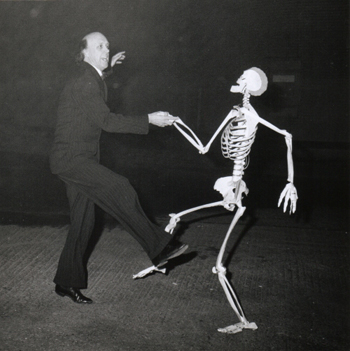
16. Except you, who are the other contributors to the album?
Orfeas is performed by a team of twelve musicians, and there were another dozen creative technicians who made it all possible. Everyone was essential to the end result, but perhaps the most prominent and well-known contributors are John Ellis, guitar (Vibrators, Stranglers), David Jackson, saxophones (Van der Graaf Generator), Lene Lovich as Eurydice (70s pop diva), Gigi Cavalli Cocchi, drums (Ligabue, C.S.I.), and David Shaw-Parker, the Bard (British actor/musician), René van Commenée, vocals (Dutch performance artist), Ricardo Odriozola, strings & arranger (Music professor, Norway) & David Minnick, arranger & multi instrumentalist (USA). But everyone else was fantastic as well!
17. Do you have any plans of making this album a movie or a theatrical play?
No, my Songstories are designed to be complete as audio experiences.
18. Are you going to tour for this album?
There are no plans for this. Can you imagine how much it would cost to perform this live?
19. You have been a part of the music industry around 40 years. Which is the best advice for people that want to keep on playing music and releasing albums after 40 years?
Do projects that you can actually perform or record with the resources you have at hand. You can break your heart planning albums which require other people’s money, and then they won’t give it to you. Use your friends, and treat them right.
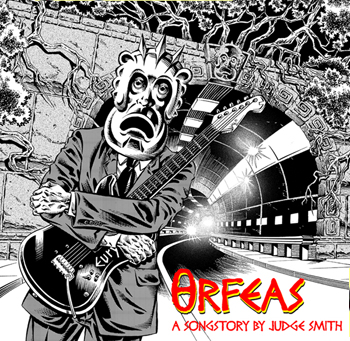
More info at: http://www.judge-smith.com/
